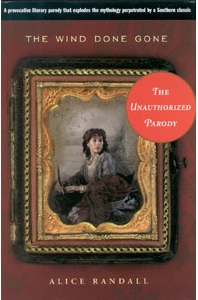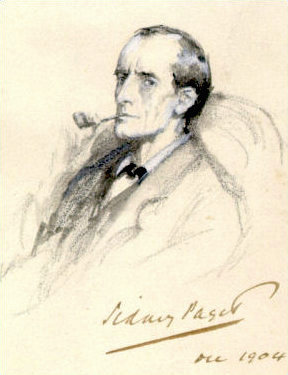
Fair use is a doctrine in United States law that permits limited use of copyrighted material without having to first acquire permission from the copyright holder. Fair use is one of the limitations to copyright intended to balance the interests of copyright holders with the public interest in the wider distribution and use of creative works by allowing as a defense to copyright infringement claims certain limited uses that might otherwise be considered infringement. The U.S. "fair use doctrine" is generally broader than the "fair dealing" rights known in most countries that inherited English Common Law. The fair use right is a general exception that applies to all different kinds of uses with all types of works. In the U.S., fair use right/exception is based on a flexible proportionality test that examines the purpose of the use, the amount used, and the impact on the market of the original work.

Estate of Martin Luther King, Jr., Inc. v. CBS, Inc. is a United States court case that involved a longstanding dispute about the public domain copyright status of the text of Martin Luther King Jr.'s famous speech, known by the key phrase "I Have a Dream", originally delivered at the August 1963 March on Washington for Jobs and Freedom. The court ruled that King's delivery of the speech was a "performance", rather than a "general publication", of its text, and therefore overruled a lower court judgment granting summary judgment in CBS's favor. The two sides ultimately settled the matter out of court instead of appealing to a higher court.

The Wind Done Gone (2001) is the first novel written by Alice Randall. It is a historical novel that tells an alternative account of the story in the American novel Gone with the Wind (1936) by Margaret Mitchell. While the story of Gone with the Wind focuses on the life of the daughter of a wealthy slave owner, Scarlett O'Hara, The Wind Done Gone tells the story of the life of slaves, Cynara, an enslaved woman during the same time period and events.
Copyright misuse is an equitable defence to copyright infringement in the United States based upon the doctrine of unclean hands. The misuse doctrine provides that the copyright holder engaged in abusive or improper conduct in exploiting or enforcing the copyright will be precluded from enforcing his rights against the infringer. Copyright misuse is often comparable to and draws from the older and more established doctrine of patent misuse, which bars a patentee from obtaining relief for infringement when he extends his patent rights beyond the limited monopoly conferred by the law.
A scène à faire is a scene in a book or film which is almost obligatory for a book or film in that genre. In the U.S. it also refers to a principle in copyright law in which certain elements of a creative work are held to be not protected when they are mandated by or customary to the genre.

In re Aimster Copyright Litigation, 334 F.3d 643, was a case in which the United States Court of Appeals for the Seventh Circuit addressed copyright infringement claims brought against Aimster, concluding that a preliminary injunction against the file-sharing service was appropriate because the copyright owners were likely to prevail on their claims of contributory infringement, and that the services could have non-infringing users was insufficient reason to reverse the district court's decision. The appellate court also noted that the defendant could have limited the quantity of the infringements if it had eliminated an encryption system feature, and if it had monitored the use of its systems. This made it so that the defense did not fall within the safe harbor of 17 U.S.C. § 512(i). and could not be used as an excuse to not know about the infringement. In addition, the court decided that the harm done to the plaintiff was irreparable and outweighed any harm to the defendant created by the injunction.

Alice Randall is an American author, songwriter, producer, and lecturer. She is best known for her contributions to country music, in addition to her novel and New York Times bestseller The Wind Done Gone, which is a reinterpretation and parody of the 1936 novel Gone with the Wind.

Jon Ormond Newman is a senior United States circuit judge of the United States Court of Appeals for the Second Circuit.

Fanfiction has encountered problems with intellectual property law due to usage of copyrighted characters without the original creator or copyright owner's consent.
In United States copyright law, transformative use or transformation is a type of fair use that builds on a copyrighted work in a different manner or for a different purpose from the original, and thus does not infringe its holder's copyright. Transformation is an important issue in deciding whether a use meets the first factor of the fair-use test, and is generally critical for determining whether a use is in fact fair, although no one factor is dispositive.
Greenberg v. National Geographic was a copyright lawsuit regarding image use and republication rights of National Geographic Society to their magazine in electronic form.

In copyright law, a derivative work is an expressive creation that includes major copyrightable elements of a first, previously created original work. The derivative work becomes a second, separate work independent from the first. The transformation, modification or adaptation of the work must be substantial and bear its author's personality sufficiently to be original and thus protected by copyright. Translations, cinematic adaptations and musical arrangements are common types of derivative works.
A parody is a creative work designed to imitate, comment on, and/or mock its subject by means of satirical or ironic imitation. Often its subject is an original work or some aspect of it, but a parody can also be about a real-life person, event, or movement. Literary scholar Professor Simon Dentith defines parody as "any cultural practice which provides a relatively polemical allusive imitation of another cultural production or practice". The literary theorist Linda Hutcheon said "parody ... is imitation, not always at the expense of the parodied text." Parody may be found in art or culture, including literature, music, theater, television and film, animation, and gaming.

Substantial similarity, in US copyright law, is the standard used to determine whether a defendant has infringed the reproduction right of a copyright. The standard arises out of the recognition that the exclusive right to make copies of a work would be meaningless if copyright infringement were limited to making only exact and complete reproductions of a work. Many courts also use "substantial similarity" in place of "probative" or "striking similarity" to describe the level of similarity necessary to prove that copying has occurred. A number of tests have been devised by courts to determine substantial similarity. They may rely on expert or lay observation or both and may subjectively judge the feel of a work or critically analyze its elements.

Cariou v. Prince, 714 F.3d 694 is a copyright case of the United States Court of Appeals for the Second Circuit, on the question of whether artist Richard Prince's appropriation art treatment of Patrick Cariou's photographs was copyright infringement or fair use. The Second Circuit held in 2013 that Prince's appropriation art could constitute fair use, and that a number of his works were transformative fair uses of Cariou's photographs. The Court remanded to the United States District Court for the Southern District of New York for reconsideration of five of Prince's works. The Supreme Court denied Cariou's petition for a writ of certiorari, and the case settled in 2014.

Veeck v. Southern Bldg. Code Congress Int'l, Inc., 293 F.3d 791, was a 2002 en banc 9-6 decision of the United States Court of Appeals for the Fifth Circuit, about the scope of copyright protection for building codes and by implication other privately drafted laws adopted by states and municipal governments. A three-fifths majority of the court's fifteen judges held that copyright protection no longer applied to model codes once they were enacted into law.

The Copyright Remedy Clarification Act (CRCA) is a United States copyright law that attempted to abrogate sovereign immunity of states for copyright infringement. The CRCA amended 17 USC 511(a):
In general. Any State, any instrumentality of a State, and any officer or employee of a State or instrumentality of a State acting in his or her official capacity, shall not be immune, under the Eleventh Amendment of the Constitution of the United States or under any other doctrine of sovereign immunity, from suit in Federal Court by any person, including any governmental or nongovernmental entity, for a violation of any of the exclusive rights of a copyright owner provided by sections 106 through 122, for importing copies of phonorecords in violation of section 602, or for any other violation under this title.
Copyright protection is available to the creators of a range of works including literary, musical, dramatic and artistic works. Recognition of fictional characters as works eligible for copyright protection has come about with the understanding that characters can be separated from the original works they were embodied in and acquire a new life by featuring in subsequent works.

Klinger v. Conan Doyle Estate, Ltd. was a 2014 decision by the U.S. Court of Appeals for the Seventh Circuit, in response to an appeal filed by the defendants against the 2013 ruling of the U.S. District Court for Northern district of Illinois. These decisions, by the District Court and the Court of the Seventh Circuit, clarified the validity of the use of characters of Sherlock Holmes and his colleague Dr. John Watson, and the story elements, in unlicensed works. Further, the scope of using characters, in the public domain was also clarified.












